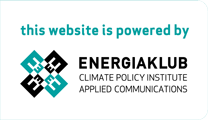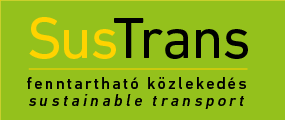Options for sustainable and energy efficient urban transport in the v4 region
In our next study, we analysed the options for sustainable and energy efficient urban transport. As a result of our work we concluded, that the transport sector of the four Visegrad countries can be characterised with similar problems. After the regime changes in 1990 the then-outdated transport systems started to be deteriorated. The modernisation of the road infrastructure mainly focused on the motorway segment, and the increase of the usage of private (especially old, second-hand) cars, resulting in the declining share of the public transport, also contributed to the worsening environmental performance of the transport sector.
However, there are good symptoms as well.
The membership of the European Union means that measures, investments, aiming the decrease of the CO2 emissions and other burdens of the environment, should be implemented. While there is a need for a change in the attitude, financial sources are also available for these targets.
If we consider the still high share of public transport in the region; the rising energy prices; the spreading of cycling within urban areas; the more common use of up-to-date methods and technologies in transport management, the increased usage of more environmental fuels etc., it can be stated that there are not just vast potential, but good chances for the improvement of the energy efficiency of the transport sector. Although the process is being under way, as it is shown by several best practices from each country that are introduced in our study, for succeeding, all stakeholders should participate in the processes: inter alia, state and local governments, NGOs, authorities, companies and the public.
Options for sustainable and energy efficient urban transport - downloadable study






